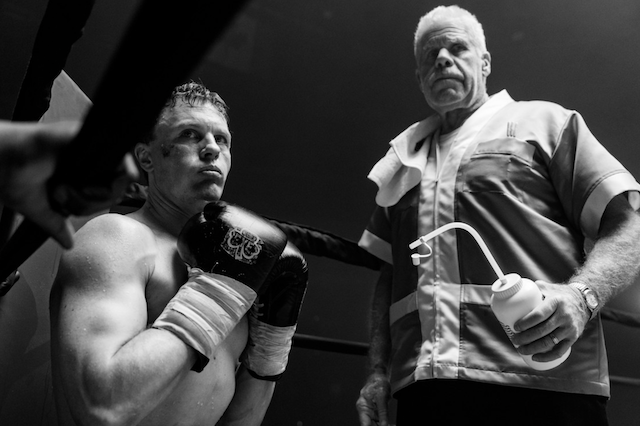
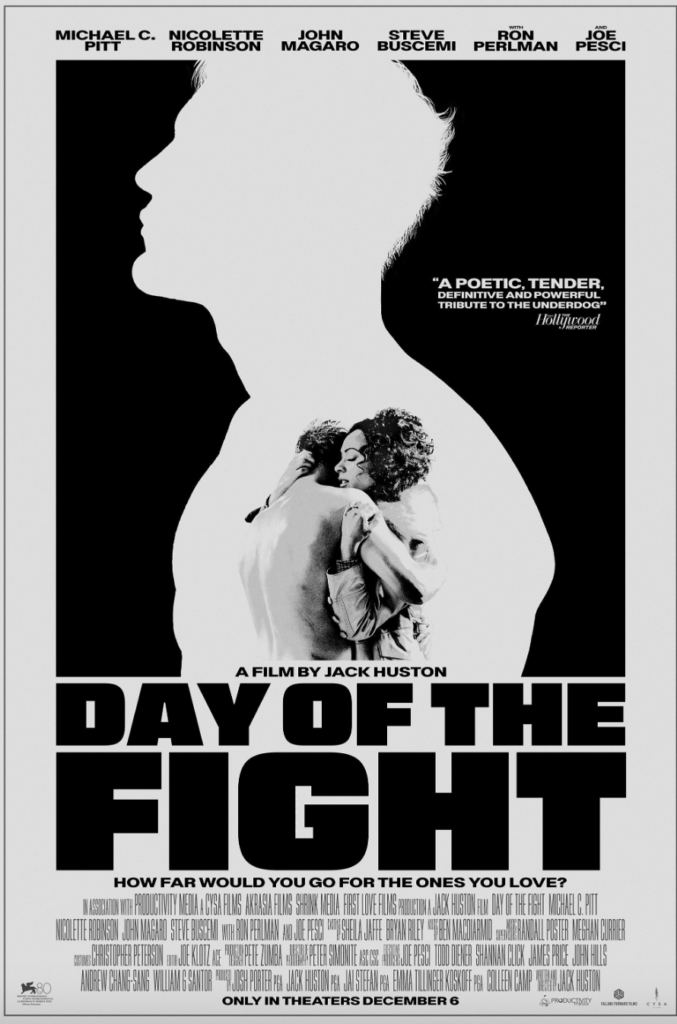
@Courtesy od Productivity Media
Press Conference with Director Jack Huston & Actor Michael Pitt
Q: Is there a Rocky, kind of Cinderella component in Mike Flannigan’s story?
Jack Huston: I conceived the idea not necessarily to be a boxing film, but a film about a boxer. I have a strong love of previous boxing films but I was trying to set us a bit aside from that because I wanted to make a film that would work without the fight. So when the fight does arrive, it’s almost the gravy on top, you’re already with Irish Mike and his story. It is very much the Cinderella story because it’s about the underdog. It’s about redemption, about second chances. We as humans are fascinated by these stories. We want to see the underdog prevail, especially someone who’s got the heart of gold like Mike does.
Q: How was your casting process and how did you get involved in the film ?
Michael Pitt: Maybe ten years ago Jack mentioned that he was writing something. I felt like he was working an idea out. Some years would come by and he would say: “I wrote a little bit more”. I still can’t believe that I’m here right now, it’s been very organic.
Jack Huston: Every word was written for Michael. I couldn’t imagine anyone else playing this part. I could hear his voice in my head as we fleshed out the story over the years. The writing process itself took 10 days because by the time I actually put fingers to keyboard I had the world in my head and I had Michael right there offering to break his hands for me.
Michael Pitt: The first time I read it it felt like it was written in a night. I don’t really know how to describe that, it was like it was purged, like it just came out of it. A constant stream of thought. It’s never been so easy for me to read a script.
Q: Was the story inspired by your own experiences? Where did the idea come from and what did you learn about yourself as a filmmaker during this process?
Jack Huston: You always have to draw from pieces of yourself, especially if you’re writing something honest. The films that I loved growing up, that inspired me to want to be in this business, those films aren’t coming about as much anymore. I wanted to bridge this gap between old and new, independent cinema and human stories. I wanted to make something that would touch you, make you feel and give you the experience to remember and for it to strike certain chords.
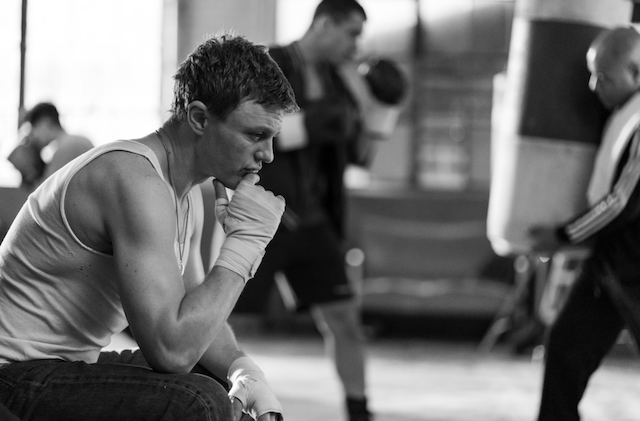
@Courtesy of Productivity Media
Q: This is a story about healing. Can you talk about the journey each of us sometimes go through to heal?
Michael Pitt: I was never really into sports but I responded to boxing. The more I studied it, the more I loved it. It has a great history in cinema because everyone feels like they’re fighting, life is a fight and a boxing match is an exhibition in the human condition.
Jack Huston: We wanted to make something that was relatable to everybody. What would you do if you had one day? And what would you say to those you love? We wanted to make something that you earned the fight at the end. We didn’t want to just force feed you violence, because there’s real beauty in boxing. When you’ve got all of this history that we’ve discovered about Irish Mike, even people who can’t bear boxing have come to this movie and said: “Listen, I hate boxing, but I love this movie.” It’s a character study, it’s a human story, that’s the beauty and boxing is the icing on the cake.
Q: What steps did you take to look and move like a boxer?
Michael Pitt: I went to every gym in New York and just let them beat me up, basically.
Jack Huston: I’ve never met someone more dedicated. I remember calling him on Christmas Day, and he was in the gym. I would periodically go and visit Michael in New York and it was beautiful because you just saw this. By the end of it, he’s a fighter. Any boxer would look at Michael in this movie and say: “Well, he’s really fighting.”
Michael Pitt: The film is not necessarily for boxing people but for me it was very important that they felt like it was portrayed honestly. One thing that I was really adamant about, and Jack was crazy enough to listen to me, was to make contact, me and the opponent. It was really important to make contact and not rely so much on choreography.
Jack Huston: We had a day and a half to film the entire boxing match. It was a tenth if not a hundredth of what most films get. Michael was so forthcoming and willing, understanding that, to get the honesty of the fight, he really wanted to fight. You have a respect for the profession in such a way that comes deeply from the soul. Thank God I had Michael, because I don’t think any other actor would have put himself through that in such a short space of time.
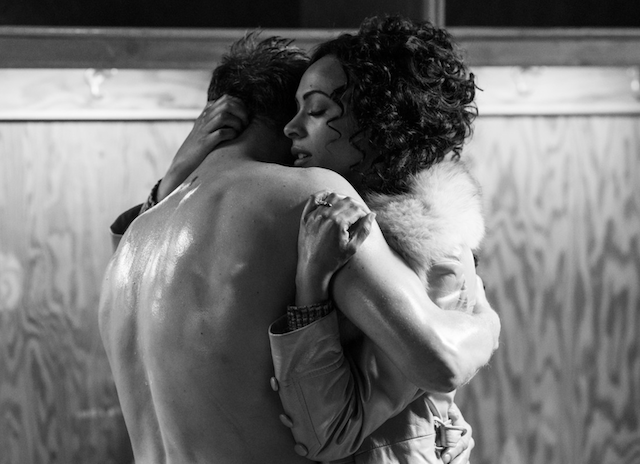
@Courtesy od Productivity Media
Q: How did you prepare to portray such a layered character and what was most challenging about it for you?
Michael Pitt: It’s been a long time since I was allowed to just be an actor, to just be directed and to not worry about writing or over intellectualizing the character. I trusted Jack, I knew what he wanted. He wanted me focused and it was a dream to trust my director and to just go through. In this business this is more and more rare.
Q: What references to the great boxing classics were part of the conception of your boxing scene? And how did you work in the perspectives of light and choreography with cinematographer Peter Simon?
Jack Huston: Funny enough, I tried not to go back to boxing films. I had those references imprinted in the back of my head. You have a bit of a catalog, a library of moments of things that inspired you, caused something that moved you. Working with Peter, we wanted to get the grain, the grit which was Brooklyn in 1989. We’d always discussed the black and white, we wanted to have a timeless feel to it and have a bit of the dirt of what 1989 Brooklyn, New York felt like. You’ve got to stick to your guns in this business because you’re going to be tried, they’re gonna try to make you change. As soon as you succumb to one, you’re gonna succumb to everything. So we were pretty adamant that this is the way the film had to look.
Michael Pitt: Jack It’s one of the things that impressed me, his insistence on keeping his vision.
Q: What did you learn about yourself as a filmmaker during this process?
Jack Huston: I always wanted to make a film, but I was in no rush. It had to be right. It had to be something that moved me, something that I had to do. This was the first time I’d ever experienced that feeling in the pit of your stomach. Like, if I don’t make this, I’m never gonna be whole. Me and Michael discussed a lot about family relationships or things that have been difficult in our lives. Sometimes you don’t want to live a life of regret. The beautiful thing I wanted to have with Mikey was he’s not asking for forgiveness. He’s actually selflessly saying sorry to everybody. You can’t ask for forgiveness because the only person who can forgive you is yourself. That’s the long journey that Mikey’s taking.
Q: – Were there boxers that you particularly looked at or studied?
Michael Pitt: I studied many boxers. got to see Freddie Roach, who’s an amazing, inspiring person. One of our great trainers of all time. I’ve known him for a while. When I would come to California, I didn’t really know anyone, Freddie really took me under his wing. You can be inspired by other actors, but in the end, you are your own person, so you fight the way you fight. When I was in New York, I couldn’t get a trainer to train me so I just went to two different gyms. I got to be around Manny Pacquiao and it was one of the most inspiring people I’ve met in my life.
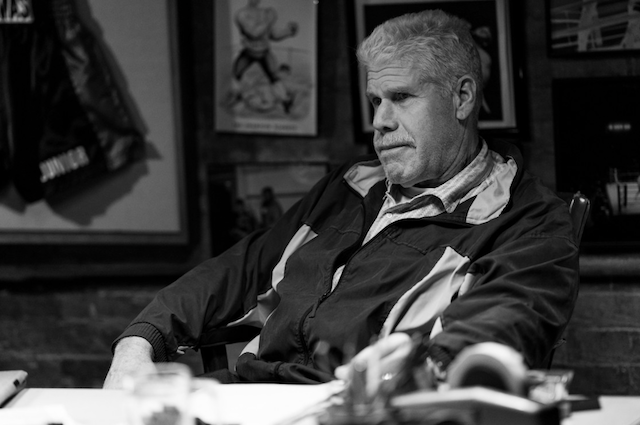
@Courtesy od Productivity Media
Q: Could you talk about working with Nicolette Robinson, Joe Pesci, John Magaro, and Steve Buscemi?
Michael Pitt: I’m extremely humbled by everyone around me. Steve and I did some great work together. He came to the set on the first day. Personally, it was very meaningful. He didn’t have to do it. Then working with Nicolette, we didn’t know each other that well, we had to display this history that we didn’t have. Working with her was just amazing. I was really impressed with her and really happy that Jack decided to go with her because there were a lot of bigger names.
He did the right thing. Joe Pesci was our second day, that was very much intense. I went up to his hotel room. Jack called me about 15 times telling me not to make him wait. I had just broken my hand and so I went up to his hotel room and I had a giant bag of ice that I was putting in my hand. I was very nervous. I spilled the ice all over the room. He came down and I thought that we were gonna connect many things. I saw he had a grand piano and this beautiful guitar. I played him a song, he listened and he said, “No, that’s pretty good.” And then he played me a song, so we connected through music.
Jack Huston: The beauty of this movie is the collaborative spirit of every single one of these actors. Everybody was free to say something or not say something. They did what their heart told them because guess what? That’s your character now. Now you own this, it’s yours, I loved watching every one of them raise the bar and sort of elevate this movie. I didn’t want to get in the way. My grandfather John Huston always said: 90 % of making a movie is cast.
Q: Did Day of the Fight by Stanley Kubrick have any influence on your movie?
Jack Huston: Well, Kubrick has had an influence on everybody. Absolutely. My favourite, without question. He was the chameleon, across every genre and made the greatest film in that specific genre, whatever it was. The first thing he’d ever done, a 15 minute documentary short that he sold for $1 ,000 to MGM to make his actual first narrative feature. So I watched it, it’s just a boxer on the day of a prize fight.I thought there was something so beautiful and simple about that. No one can not be influenced as a filmmaker by Stanley Kubrick, he definitely planted the seed with his documentary shorts.
If you like the press conference, share your thoughts below.
Check out more of Adriano’s articles.
Here’s the trailer for Day of the Fight:

